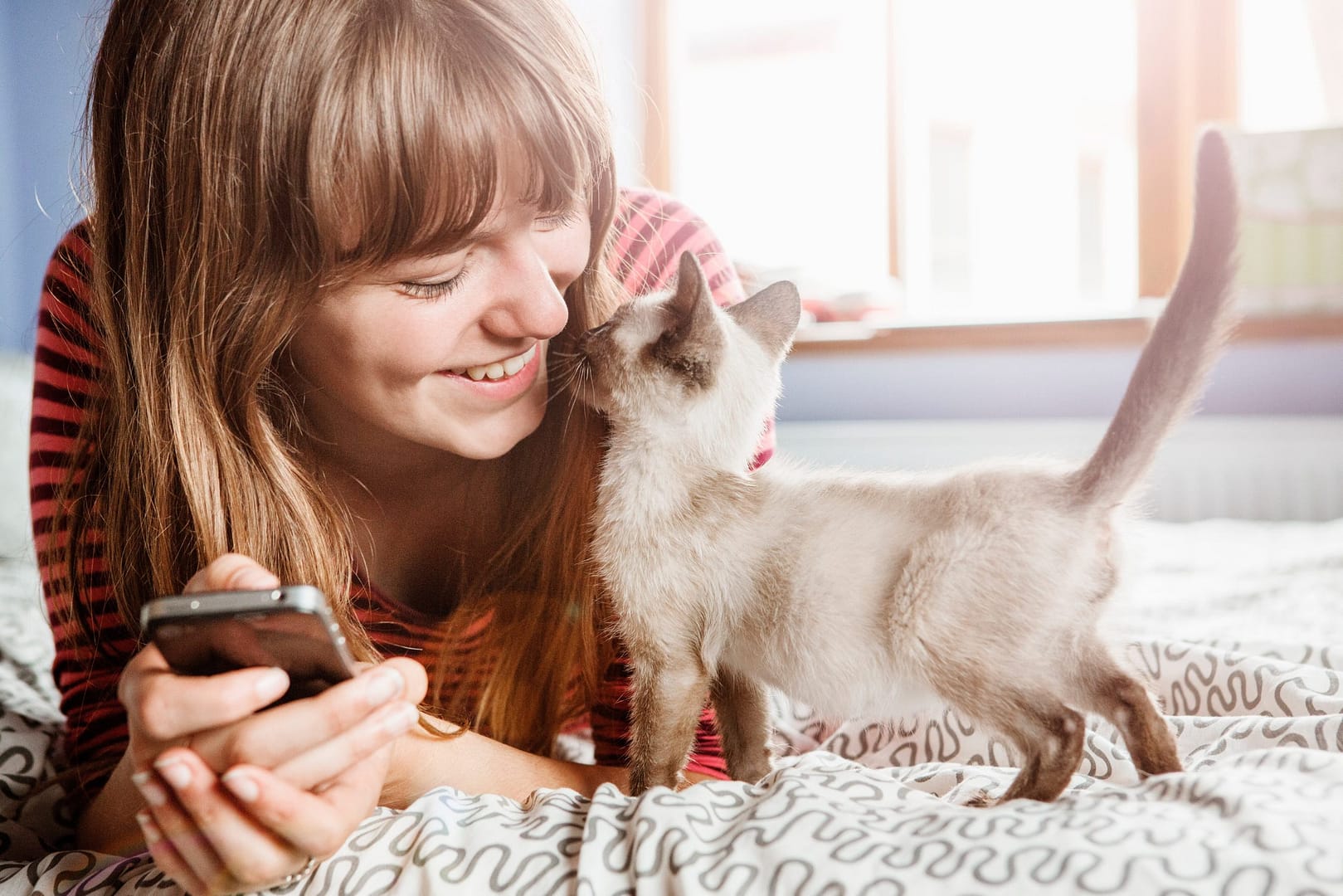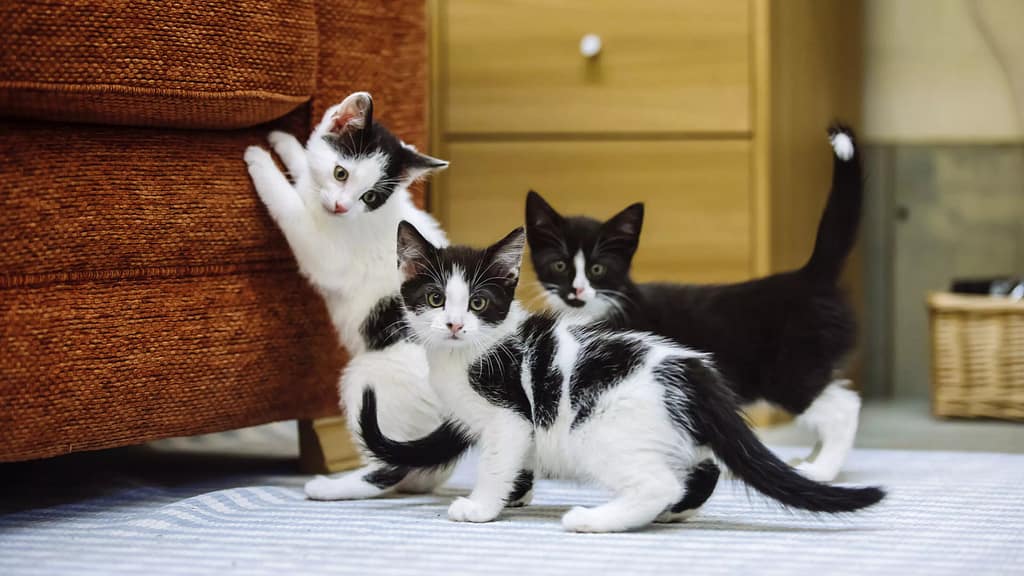Essential Kitten Care: What Every New Pet Parent Should Know

Bringing a new kitten home is an exciting and rewarding experience filled with joy and discovery. However, it also comes with a significant responsibility to ensure your new furry friend enjoys a healthy and happy life.
Understanding kitten care from the outset is crucial, as the early months are a formative period for their development. Proper care encompasses not only physical health but also emotional and social well-being.
By investing time and effort in understanding your kitten’s needs, you lay a strong foundation for a long, loving relationship and a thriving pet.
Table of Contents
1. Preparing Your Home

Kitten-proofing Your Living Space
Before bringing your new kitten home, it’s essential to kitten-proof your living space to ensure their safety. Kittens are naturally curious and may get into trouble if their environment isn’t secured.
Start by removing any hazardous items, such as small objects they could swallow, electrical cords they might chew on, and toxic plants or chemicals. Ensure windows and balconies are secure to prevent escape or falls. Store breakable items out of reach and cover any areas where a kitten could become trapped.
By creating a safe environment, you help your kitten explore and play without risk of injury.
Essential Items to Purchase
To provide the best care for your kitten, it’s important to have the right supplies on hand. Here are some essential items you should consider:
- Litter Box: Choose a litter box that is easily accessible and appropriately sized for your kitten. Clumping, unscented litter is often a good choice as it is gentle on tiny paws.
- Food and Water Bowls: Select shallow, wide bowls that are easy for your kitten to eat and drink from. Stainless steel or ceramic bowls are ideal because they are durable and easy to clean.
- Scratching Posts: Kittens have an instinct to scratch. Providing scratching posts will help keep their claws healthy and can save your furniture from damage. Look for sturdy posts covered in sisal or other cat-friendly materials.
- Bed: A comfortable bed will give your kitten a cozy spot to rest. Place it in a quiet area where they feel safe and secure.
- Toys: Interactive toys are essential for your kitten’s mental and physical stimulation. Toys like feather wands, balls, and puzzle toys will keep them entertained and help you bond with your new pet.
Investing in these essential items will not only make your kitten’s transition into your home smoother but also promote their overall well-being and happiness.
2. Nutrition and Feeding

Choosing the Right Food for Your Kitten’s Age and Needs
Proper nutrition is crucial for your kitten’s growth and development. Start by selecting a high-quality kitten food that meets their specific dietary requirements.
Kittens need a diet rich in protein and fat to support their energetic lifestyle and rapid growth. Look for food labeled specifically for kittens, as these products will contain the essential nutrients they need.
You can choose between wet and dry food, or a combination of both, but ensure the food you select is appropriate for their age.
Establishing a Feeding Schedule
Consistency is key when it comes to feeding your kitten. Establishing a regular feeding schedule helps regulate their metabolism and promotes healthy digestion.
Most young kittens benefit from being fed small, frequent meals throughout the day—typically three to four times daily until they are around six months old. After that, you can gradually reduce the number of feedings to two meals a day.
Monitor your kitten’s weight and adjust portion sizes as needed to prevent overfeeding.
Importance of Fresh Water
Always provide your kitten with access to fresh water. Hydration is vital for their overall health, aiding in digestion, nutrient absorption, and temperature regulation.
Make sure to change the water daily and keep the water bowl clean to encourage your kitten to drink regularly. Consider using a water fountain as some kittens are more attracted to running water, which can help ensure they stay adequately hydrated.
3. Health and Veterinary Care

Essential Vaccinations and Check-ups
Vaccinations are vital for protecting your kitten against various infectious diseases. When you first bring your kitten home, schedule an initial veterinary visit to discuss their vaccination schedule.
Typically, kittens require a series of vaccinations starting at about six to eight weeks of age, including shots for feline distemper (panleukopenia), feline calicivirus, and feline herpesvirus type I (rhinotracheitis). Additionally, your veterinarian may recommend vaccinating against feline leukemia virus (FeLV) depending on your kitten’s risk factors.
Regular check-ups, usually once a year, are essential for monitoring your pet’s overall health and ensuring that booster shots are administered as needed to maintain immunity.
Understanding Common Health Issues in Kittens
Kittens are susceptible to a range of health issues, and early detection is crucial for effective treatment.
Common problems include upper respiratory infections, which often present symptoms such as sneezing, runny nose, and eye discharge. Gastrointestinal issues, like diarrhea and vomiting, can also occur, sometimes due to dietary changes or parasites.
Additionally, watch for signs of ear mites, such as excessive scratching or head shaking, and dental problems, which can manifest as bad breath or reluctance to eat. It’s important to consult your veterinarian if you notice any signs of illness to ensure prompt and appropriate care.
Flea Prevention and Deworming
Fleas and intestinal parasites can significantly impact your kitten’s health, making preventative measures essential.
Begin a flea prevention regimen as advised by your vet, which may include topical treatments, oral medications, or flea collars. Since kittens are particularly prone to intestinal worms, regular deworming is also necessary.
Your veterinarian will provide a deworming schedule that typically starts when your kitten is two weeks old and continues every two to three weeks until they are about three months old.
By staying on top of flea prevention and deworming, you can ensure your kitten remains healthy and comfortable.
4. Socialization and Training

Importance of Early Socialization
Early socialization is crucial for helping your kitten become a well-adjusted and confident adult cat.
Introducing your kitten to a variety of people, environments, and experiences during their critical socialization period—typically between three and fourteen weeks of age—can prevent behavior issues later on.
Positive interactions with humans and other animals can help reduce fear and aggression, making your kitten more adaptable to new situations and less stressed by changes in their environment.
Basic Training Tips
Litter Training
Litter training is usually straightforward, as kittens have an instinct to bury their waste.
To help your kitten learn quickly, place them in the litter box immediately after meals and naps. If they begin to squat outside the box, gently place them inside to reinforce the correct behavior.
Keep the litter box clean, as cats are more likely to use it if it is free of waste. Praise and reward your kitten when they use the litter box correctly to encourage this positive behavior.
Scratching Post Use
Teaching your kitten to use a scratching post can save your furniture from damage and help them maintain healthy claws. Place the scratching post in a prominent area where your kitten likes to scratch.
Encourage them to use the post by gently placing their paws on it or using toys and treats to make it an inviting spot. Reinforce this habit by providing praise and rewards when they use the post instead of furniture or carpets.
Handling and Gentle Play
Proper handling and gentle play are essential for building trust and preventing injury. Handle your kitten gently, supporting their body and avoiding rough handling that can cause fear or pain.
Gradually accustom them to being touched all over their body, including their paws and ears, to make future grooming and veterinary visits less stressful.
Engage in regular play sessions using toys rather than hands to stimulate your kitten’s hunting instincts in a safe and controlled manner. This helps prevent inappropriate biting and scratching and strengthens the bond between you and your kitten.
5. Grooming and Hygiene
Introduction to Grooming Routines
Regular grooming is essential for maintaining your kitten’s health and appearance. Establishing a grooming routine early will help your kitten become accustomed to the process and make it a pleasant experience for both of you.
Brushing your kitten’s fur helps reduce shedding, prevent mats, and keep their coat shiny and healthy. For short-haired kittens, brushing once a week is usually sufficient, while long-haired breeds may require daily brushing to prevent tangles.
Brushing
When brushing your kitten, use a soft-bristled brush or a comb designed for cats. Start with gentle strokes and praise your kitten to create a positive association with brushing.
Pay extra attention to areas prone to matting, such as behind the ears and under the legs. Regular brushing also allows you to check for skin issues, parasites, or lumps.
Bathing
Bathing your kitten is rarely necessary, as cats are generally very good at keeping themselves clean. However, occasional baths may be required if your kitten gets particularly dirty or has a skin condition. Use a mild, kitten-specific shampoo and warm water.
Make sure to rinse thoroughly and dry your kitten completely to avoid chilling. Keep the experience as calm and stress-free as possible with gentle handling and soothing reassurances.
Dental Care for Kittens
Dental hygiene is an often-overlooked aspect of your kitten’s health. Regular brushing can prevent plaque buildup, gum disease, and bad breath. Start by getting your kitten used to having their mouth handled.
Use a kitten-sized toothbrush and a pet-safe toothpaste to gently brush their teeth. Aim to brush their teeth several times a week, gradually increasing the frequency as your kitten becomes more comfortable with the process.
Keeping Their Living Area Clean
A clean living environment is crucial for your kitten’s well-being. Regularly clean their litter box to prevent odors and reduce the risk of disease. Wash their bedding and toys to remove dirt and bacteria.
Sweep or vacuum common areas where your kitten plays to keep them free of dust and pet hair. A tidy space helps maintain a healthy and happy kitten.
6. Understanding Kitten Behavior
Common Kitten Behaviors and How to Address Them
Kittens are known for their playful and curious nature, but their behavior can sometimes be puzzling or challenging for new pet owners.
Understanding the common behaviors of kittens and knowing how to address them can help foster a healthy and harmonious relationship.
Scratching and Clawing
Kittens scratch and claw not only to keep their claws sharp but also to mark their territory. Provide multiple scratching posts or pads to redirect this natural behavior away from furniture and other household items.
Using catnip on the scratching post can make it more appealing. If your kitten continues to scratch inappropriately, consider using cat deterrent sprays on the areas you want to protect.
Biting and Nipping
While playful biting is normal kitten behavior, it should be gently discouraged to prevent it from becoming a habit. If your kitten bites or nips, immediately stop playing and withdraw attention.
Consistently reinforce that biting leads to the end of playtime. Offer chew toys to provide an alternative outlet for their need to bite.
Pouncing and Chasing
Kittens have a strong hunting instinct, which is often displayed through pouncing and chasing behaviors.
Interactive toys such as feather wands or laser pointers are great for catering to this instinct in a controlled way. Ensure that the toys are safe and that play sessions are supervised to prevent accidents.
Climbing
Climbing is another instinctive behavior for kittens, serving both exercise and inquisitive purposes. Provide cat trees or shelves for climbing to satisfy their curiosity and reduce the temptation to climb curtains and furniture.
Ensuring they have designated climbing areas helps keep your living space kitten-proofed.
Encouraging Positive Behavior through Reward-Based Training
Reward-based training is an effective method to encourage good behavior and build a positive relationship with your kitten.
By using treats, praise, and play as rewards, you can motivate your kitten to repeat desired behaviors.
- Positive Reinforcement: Reward your kitten immediately after they demonstrate a desired behavior. For example, give treats when they use the scratching post or the litter box correctly.
- Clicker Training: This method involves using a clicker to mark the exact moment your kitten performs the right behavior, followed by a reward. Over time, your kitten will associate the click with positive outcomes.
- Consistency: Be consistent with your commands and rewards. This helps your kitten understand what is expected and reinforces learning.
- Patience: Training takes time and patience, especially with young kittens. Keep training sessions short and upbeat, ending on a positive note to maintain your kitten’s enthusiasm.
By understanding and addressing common behaviors and using reward-based training techniques, you can guide your kitten toward becoming a well-mannered and delightful companion.
Conclusion
Proper kitten care is essential for ensuring your new furry friend grows into a healthy and well-behaved cat.
Regular grooming, like brushing and occasional bathing, helps maintain their coat and skin health.
Dental care prevents oral diseases and fosters good hygiene while keeping their living area clean minimizes the risk of infections.
Understanding and addressing common kitten behaviors through reward-based training not only promotes positive habits but also strengthens the bond between you and your pet.
As a new pet parent, remember to cherish and enjoy the journey with your kitten.
Their playful antics and affectionate nature can bring immense joy and happiness to your home.
With dedication and patience, you can create a nurturing environment that sets the foundation for a lifelong companionship filled with love and mutual respect. Embrace the process, and you’ll be rewarded with a loving and loyal feline friend.




